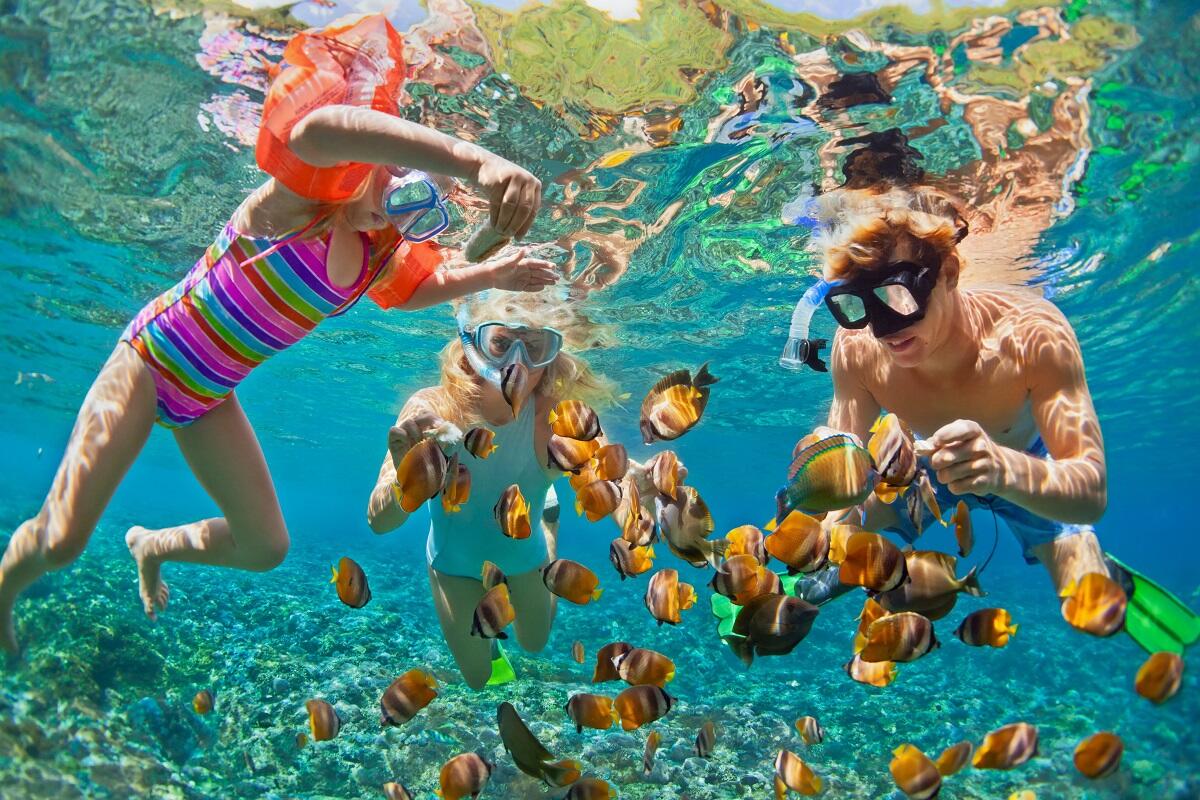Enjoy diving and snorkeling regardless of age.
No matter diving or snorkeling, whenever you dive down, you must be amazed by the beautiful scenery and oceanic life, as the sunbeam shines through and dances with the rich biodiversity. Everyone can enjoy underwater sports, especially for snorkeling, where all you need is a mask and snorkel. From the age of 7 to 77 (or older), you can explore the wonders from the sea surface.
Compared with snorkeling, equipment and professional knowledge are essential for scuba diving. For diver safety, It is necessary to take a scuba diving course and dive with experienced instructors. After obtaining the license, you can dive with friends under supervision of dive professionals. Yes, you can dive wherever in the world: Salt water, Fresh water, or even ice water! Safe diving is super important.



